After the fall of the Ottoman Empire, thousands of Arab refugees fleeing the ensuing war found refuge in Latin America, beginning a new chapter in their lives. This wave of migration has led today to a community of more than 10 million Lebanese now living on the continent.
Back then, open immigration policy allowed many Lebanese arrivals to move mainly to Venezuela and Colombia. In Venezuela alone, more than one million citizens today are of Lebanese origin. Significantly many of these immigrants also settled in the Tri-Border Area: a 200 square-kilometre zone at the intersection of Argentina, Brazil and Paraguay that comprises one city from each country: Puerto Iguazú in Argentina, Foz de Iguazú in Brazil, and Ciudad del Este in Paraguay.
A 1990 study by the United States Special Operations Command finds that over time, “Hezbollah clerics began putting in agents and recruiting sympathizers among Arab and Muslim immigrants in the Triple Border during the Lebanese civil war in the mid-1980s”. These Hezbollah support networks, known locally as “clans”, are used by the militant group to gain access to the Latin American continent for economic and logistical expansion.
Matthew Levitt, senior researcher at US think-thank the Washington Institute, believes this is the reason that one Mohsen Rabbani was sent to South America in 1983. Rabbani, an Iranian-born cleric, served as a key element for the establishment of Hezbollah cells on the continent, and is also the person formally accused by the Argentine courts of having masterminded behind the 1994 terrorist attack on the Asociación Mutual Israelita Argentina (AMIA, a Jewish community center) in Buenos Aires. The bombing killed 85 people and injured hundreds, and is thought to have been the worst terror attack on the Jewish community in the history of Latin America.
The Clans in the Present
The pro-Hezbollah “clans” today are made up of Lebanese families who exert control over given territories in South America. Speaking to IranWire, Joseph Humire, a security expert and Director of the Center for a Free and Secure Society, said Brazil is currently playing host to the largest number of pro-Hezbollah clans. “The country that has the most clans abject to the 'Party of God' is Brazil,” he said. “The Lebanese community in that country is really large. This does not mean that they are all part of Hezbollah; on the contrary, it is a generous community that participates in different charities. They are its other victims.”
Venezuela, Humire adds, also has a significant number of clans: at least nine all in all, operating outside of government control. Some members of these clans even hold key positions within the Venezuelan state and therefore influence over economic decisions taken in the country.
The Barakat Clan
After 9/11, a rumor began to circulate that Osama Bin Laden was hiding in the Tri-Border Area. Then-US President George Bush decided to launch out an investigation, which did not locate Bin Laden but instead exposed the pernicious presence of the Barakat clan: one of the clans most strongly identified with Hezbollah.
The US discovered that Assad Ahmad Barakat, one of the men accused of involvement in the AMIA attack, had by then become the leader of the clan. Assad Barakat is currently imprisoned in Paraguay accused of immigration fraud, and still waiting for his extradition to Lebanon.
Along with his brothers Fadel and Hassan, Assad had established call centers for strategic use in planning and executing terrorist attacks. These facilities allowed terrorists to make calls abroad without any record, and it was from here that the group's operators in Latin America were communicating with Hezbollah in Lebanon to organize ahead of violent operations.
The government of Chile has identified several import and export companies, primarily located in free trade zones such as the Iquique Free Trade Zone (ZOFRI) in northern Chile, which are suspected of serving as front organizations or shell companies for Hezbollah. Saleh Trading Ltd. is one of them
Through this company, together with BARAKAT IMPORT EXPORT LTDA, money laundering operations were carried out to finance the extremist group. The Barakat clan also had other active companies in countries all over Latin America, including Venezuela, and shreds of evidence were found that suggested Venezuela had served as on more than one occasion as a base for operations carried out by Assad Ahmad Barakat. Among these are the business conducted with the Ministry of Sports with the company Saleh Training LTDA, which was established in Chile by Kalhil Saleh and Assad Barakat in 2001.
Venezuela is also the base of operations of choice for three other three infamous clans: Saleh, Rada and Nasr al-Din. Each of these groups, Humire says, has control of a different section of the clandestine route between Margarita Island, a tax-free shopping enclave in Venezuela used as a meeting point by Hezbollah, and Maicao city in Colombia.
The Saleh Clan
The Saleh clan operated mainly in Colombia until 2012, when its leader, a prominent Shiite businessman and Hezbollah agent called Ali Mohamad Saleh, and his brother Kassem Mohamad Saleh were sanctioned and left Colombia to settle in Venezuela, where they are currently based. Ali Mohamad is also a card-carrying member of Hezbollah’s political wing, serving as its official representative in Maicao.
The Saleh brothers were responsible for a cross-border terrorist network in Colombia and Venezuela that was exposed in 2006 during “Operation Titan”, a two-year anti-drugs trade case worked by Colombian and US agents that led to more than 130 arrests and the seizure of $23 million.
Operation Titan revealed the existence of a welter of illegal operations taking place through cross-border trade, mostly by drug cartels with links to the Maduro regime, as well as huge amounts of cash being physically shuttled between the two countries. For years, the Saleh clan had cornered the illicit market for drugs, weapons, bulk cash-smuggling, and money laundering in Maicao. Ali Mohamad and Kassem Mohamad Saleh were finally accused of financial terrorism in 2012 by the US Treasury's Office of Foreign Assets Control.
According to various testimonies, Humire says, this clan is now based in Maracaibo city working in co-ordination with a powerful drug cartel in Venezuela called "Los Leales". They are thought to control the migration route of La Guajira in Colombia.
The Nasr al-Din Clan
Meanwhile on Margarita Island, a key strategic location for Hezbollah in the Caribbean, the Nasr al-Din clan has put down roots. This clan was a formal part of the regime of the Venezuelan former President Hugo Chavez and in fact, even today, Ghazi Nasr al-Din, sanctioned by OFAC as far back as 2008 for his ties to Hezbollah, is involved with Venezuelan foreign relations and acts as an official diplomat.
Likewise, Ghazi’s older brother, Abdallah Nasr al-Din, has been a prominent member of the Partido Socialista Unido de Venezuela (PSUV), serving as regional coordinator for the state of Nueva Esparta in the Caribbean country. The third brother, Oday, has been accused of being responsible for various destabilizing operations inside the country. The brothers have never formally declared themselves part of Hezbollah, but they have never denied that they are sympathizers with the cause.
The Rada Clan
The Rada clan is an extremely large outfit that Joseph Humire says has strongholds across Venezuela, but whose main based of operations is in the country’s industrial capital, Valencia, where they control several companies linked to the cryptocurrency industry and controlled by Nicolas Maduro regime.
The Rada clan also has a strong presence in Punto Fijo, the largest city in Falcon State in northern Venezuela. This clan keeps a lower profile than the other two and yet is not subject to any US sanctions. But one of its best-known members, Abdala Rada Ramel, has close ties to Salman Raouf Salman, who has been also accused of an important role in the AMIA bombing attack. Furthermore, the clan has a direct, strong and proven connection with Hezbollah in Lebanon.
All three clans are strategically positioned close to the most important ports of Venezuela, from which they doubtless oversee the trade and handling of goods that in turn, allows Hezbollah to profit on the continent. Moreover, they not only enjoy the support of the Venezuelan regime but are also part of it. One of their most prominent allies is Tarek El Aisami, a Venezuelan politician who controls all maritime trade in the country.
It is important to note that although these clans of Lebanese origin are Hezbollah's first access point to Latin America, huge swathes of the Lebanese community on the continent either do not identify with or outright object to “The Party of God”.
"The community is not bad,” Humire stresses. “Many add value to society, they are victims of Hezbollah and many left their countries fleeing the party." These clans represent a danger to all citizens of the continent as they are an integral part of the largest organized crime network in Latin America.
visit the accountability section
In this section of Iran Wire, you can contact the officials and launch your campaign for various problems





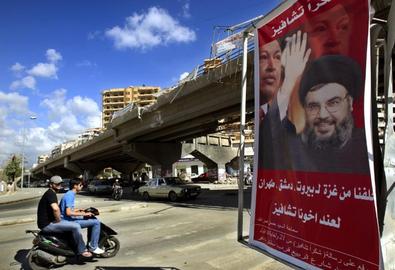
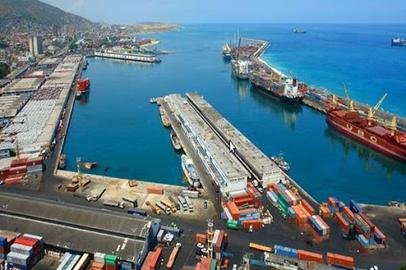
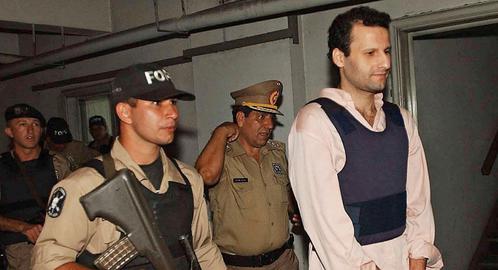
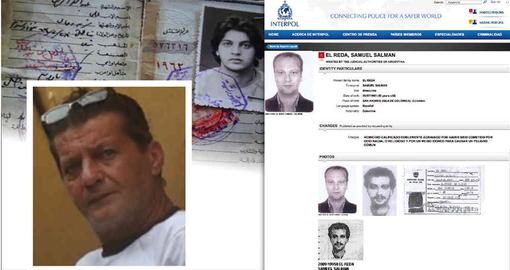



















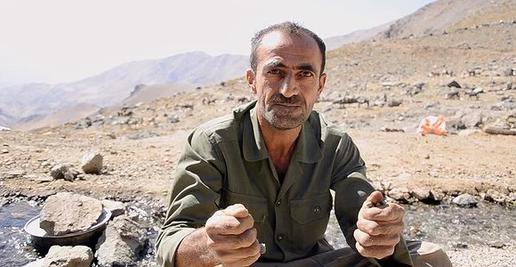
comments